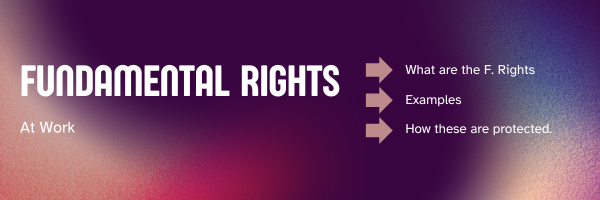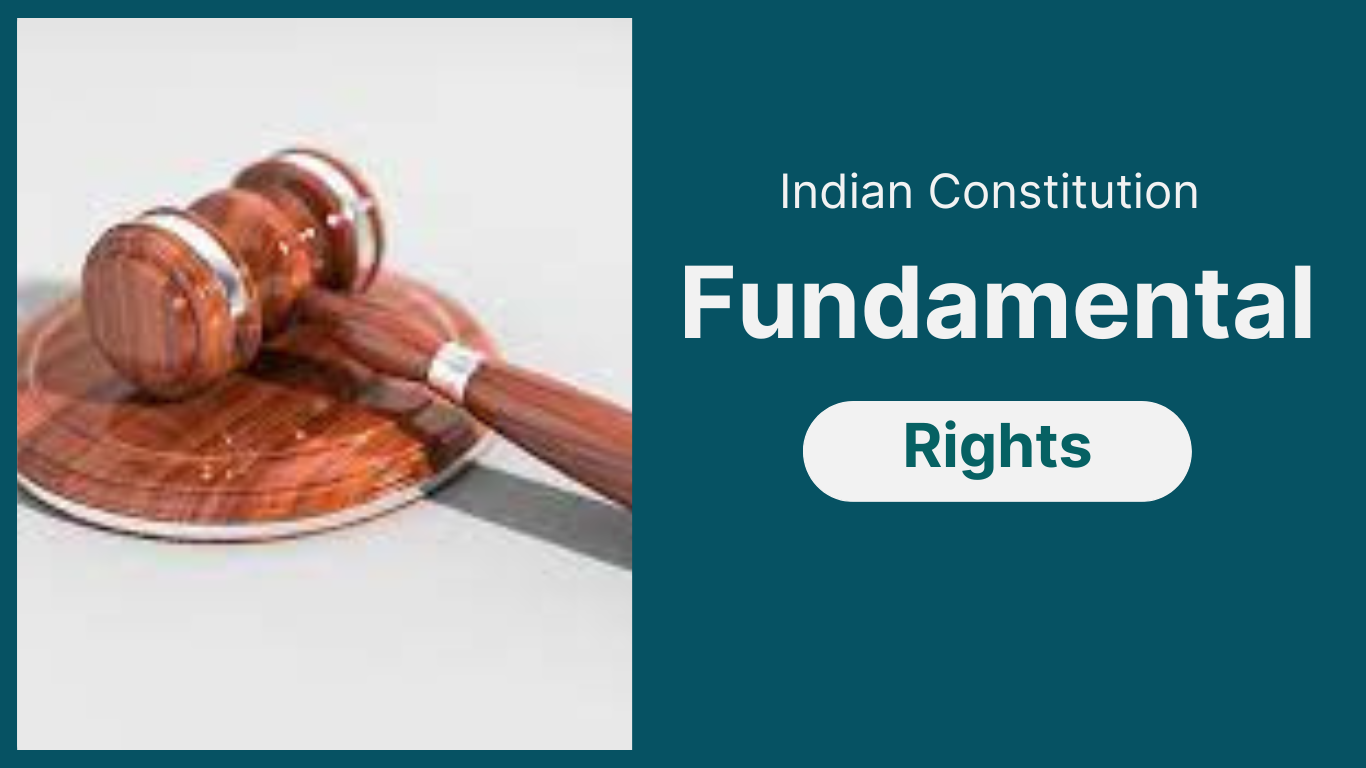Fundamental Rights: at work
What is Fundamental Rights?
Fundamental rights are a set of basic rights and freedoms that are considered essential for the well-being, dignity, and development of individuals. These rights are typically enshrined in a country’s constitution or legal framework and are meant to protect individuals from government abuse and ensure their fundamental human rights are respected.
“The concept of fundamental rights varies from country to country.”
Some common examples include:
1. Right to Life and Personal Liberty: The right to live without fear of unlawful or arbitrary deprivation of life, and the right to personal freedom and security.
2. Right to Equality: The right to be treated equally before the law and not to be discriminated against on the basis of race, religion, gender, caste, etc.
3. Freedom of Speech and Expression: The right to express one’s thoughts, opinions, and beliefs without fear of censorship or punishment.
4. Freedom of Religion: The right to practice any religion or belief system of one’s choice, or the right to practice no religion at all, without interference from the state.
5. Right to Privacy: The right to keep personal information private and protected from unauthorized access or intrusion.
6. Right to Education: The right to access education and receive free and compulsory primary education.
7. Right to Work and Employment: The right to work in fair and safe conditions, and to be protected against unfair labor practices.
8. Right to Health: The right to access adequate healthcare and medical services.
9. Right to Freedom of Assembly and Association: The right to gather peacefully and form associations or organizations.
10. Right to Freedom of Movement: The right to move freely within one’s country and to travel abroad.
These fundamental rights are considered inherent to all individuals, regardless of their nationality, race, gender, or any other characteristic. They form the basis for a just and democratic society, where the government is accountable to its citizens and respects their individual liberties. In case of any violation of fundamental rights, individuals often have the right to seek legal remedies or protection through the judicial system.
Fundamental Rights in the Indian Constitution

In the Indian Constitution, fundamental rights are enshrined in Part III, from Article 12 to Article 35. These rights are considered essential for the protection and well-being of Indian citizens. They are enforceable by the courts, and any law or action that violates these fundamental rights can be challenged and struck down as unconstitutional. Here is a summary of some key fundamental rights in the Indian Constitution:
1. Right to Equality (Articles 14-18):
- Article 14: Equality before the law and equal protection of the law.
- Article 15: Prohibition of discrimination on grounds of religion, race, caste, sex, or place of birth.
- Article 16: Equality of opportunity in matters of public employment.
- Article 17: Abolition of “untouchability.”
- Article 18: Abolition of titles and nobility.
2. Right to Freedom (Articles 19-22):
- Article 19: Protects certain freedoms, including freedom of speech and expression, assembly, association, movement, and residence.
- Article 20: Protection in respect of conviction for offenses.
- Article 21: Right to life and personal liberty (interpreted to include the right to live with human dignity).
- Article 22: Protection against arrest and detention in certain cases.
3. Right against Exploitation (Articles 23-24):
- Article 23: Prohibits trafficking in human beings and forced labor.
- Article 24: Prohibits the employment of children in hazardous industries.
4. Right to Freedom of Religion (Articles 25-28):
- Article 25: Freedom of conscience and the right to freely profess, practice, and propagate religion.
- Article 26: Freedom to manage religious affairs.
- Article 27: Prohibits the use of public funds for religious purposes.
- Article 28: Prohibits religious instruction in educational institutions wholly funded by the state.
5. Cultural and Educational Rights (Articles 29-30):
- Article 29: Protection of the interests of minorities in matters of culture, language, and education.
- Article 30: Right of minorities to establish and administer educational institutions.
6. Right to Constitutional Remedies (Article 32):
- Article 32 grants the right to move to the Supreme Court for the enforcement of fundamental rights. It is considered the “heart and soul” of the Indian Constitution.
Apart from these, the Indian Constitution also recognizes the right to property as a legal right (Article 300A), which is not a fundamental right but an ordinary legal right.
It’s important to note that while these fundamental rights are granted to Indian citizens, some of them are also available to non-citizens living in India, while others are exclusively for citizens. Additionally, the Constitution allows the government to impose reasonable restrictions on certain rights in the interest of public order, morality, and national security.


